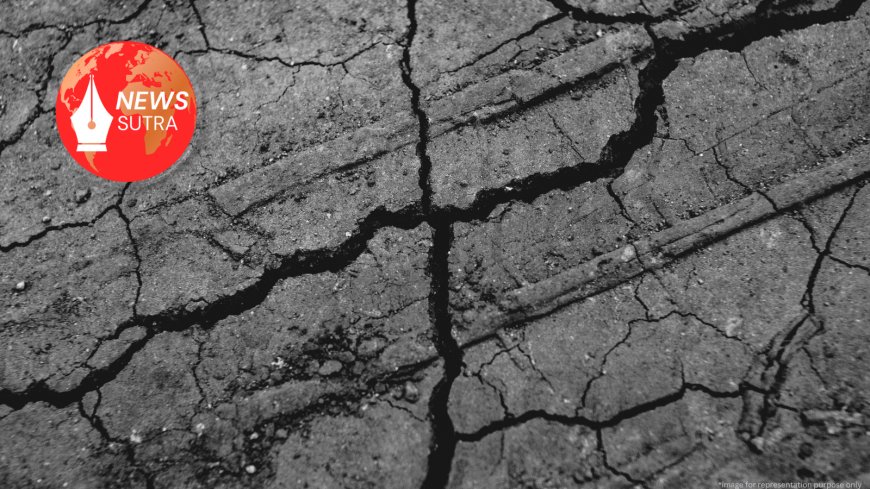Tremors Shakes Delhi: Earthquake Jolts National Capital, No Major Damage Reported So Far
A mild earthquake struck Delhi on July 10, 2025, causing panic among residents. Get the latest updates on magnitude, epicenter, and expert insights on seismic activity in the region.

Tremors Shake Delhi: Earthquake Jolts National Capital, No Major Damage Reported So Far
New Delhi, July 10, 2025:
Mild tremors were felt across the Delhi-NCR region in the early hours of Wednesday, triggering momentary panic among residents. The Indian Meteorological Department (IMD) confirmed that the earthquake had a magnitude of 4.1 on the Richter scale, with the epicenter located near Bahadurgarh in Haryana, approximately 40 kilometers from Delhi.
The tremor struck at 3:36 AM IST, catching most people off guard. Although the quake was classified as low to moderate in intensity, it was strong enough to be felt in several parts of Delhi, Noida, Gurugram, Ghaziabad, and Faridabad. People rushed out of their homes, with many sharing their experiences on social media platforms.
What the IMD Has Confirmed
According to the official statement from the National Center for Seismology (NCS), the epicenter of the quake was at a depth of 10 kilometers, which typically allows tremors to be more widely felt on the surface.
"The earthquake measured 4.1 on the Richter scale. No aftershocks have been recorded so far, and no major infrastructure damage has been reported," an IMD spokesperson said.
Public Response and Safety Measures
Residents across Delhi NCR were woken by the jolts, which lasted for about 7–10 seconds. While no injuries have been reported, some areas experienced temporary disruptions in internet and power services. Authorities quickly responded to ensure public safety, with the Delhi Disaster Management Authority (DDMA) issuing a brief advisory urging residents to remain calm and check for any structural damages at home.
Local police and fire departments also confirmed that they received multiple calls, mostly from panicked residents, but no cases of injury or collapse were logged.
A Wake-Up Call for Seismic Preparedness
Although Delhi falls under Seismic Zone IV, which denotes a high risk of earthquakes, the city’s urban design remains underprepared for large-scale seismic events. Experts have repeatedly warned about the vulnerability of older buildings and densely packed localities in the city.
Seismologist Dr. Manisha Kohli from the Indian Institute of Geosciences emphasized,
“Today’s quake serves as a reminder that Delhi is in a seismically active zone. Authorities must invest in early warning systems, public awareness, and enforce stricter building codes to ensure future resilience.”
History of Earthquakes in Delhi
This isn’t the first time Delhi has experienced seismic activity. In recent years, the capital has seen a rise in mild tremors:
-
June 2023: Magnitude 5.2 quake with epicenter in western Nepal was felt across NCR.
-
March 2022: Series of minor tremors over two days.
-
2020: Over a dozen low-intensity quakes during COVID-19 lockdown.
These recurrent events indicate tectonic shifts along the Himalayan and Aravalli fault lines, which often impact northern India.
What Residents Should Know
In the wake of the latest earthquake, experts and government agencies advise the public to follow these safety protocols:
-
Stay away from windows, glass, and exterior walls during tremors.
-
Do not use elevators during or immediately after an earthquake.
-
Keep emergency kits and documents ready.
-
Report visible cracks or structural damages to local authorities immediately.
Government’s Next Steps
The Union Ministry of Home Affairs and National Disaster Response Force (NDRF) are expected to conduct a routine vulnerability assessment in urban clusters of Delhi following this incident. Officials have also planned mock drills in schools and public offices to raise awareness about earthquake preparedness.
Final Word
While the earthquake in Delhi today did not result in casualties or severe damage, it highlights the urgent need for better preparedness in a rapidly urbanizing city like the national capital. Experts continue to warn that it’s not a matter of if, but when a stronger quake might strike. Authorities, planners, and citizens must work collectively to ensure safety and reduce risks associated with such natural disasters.











